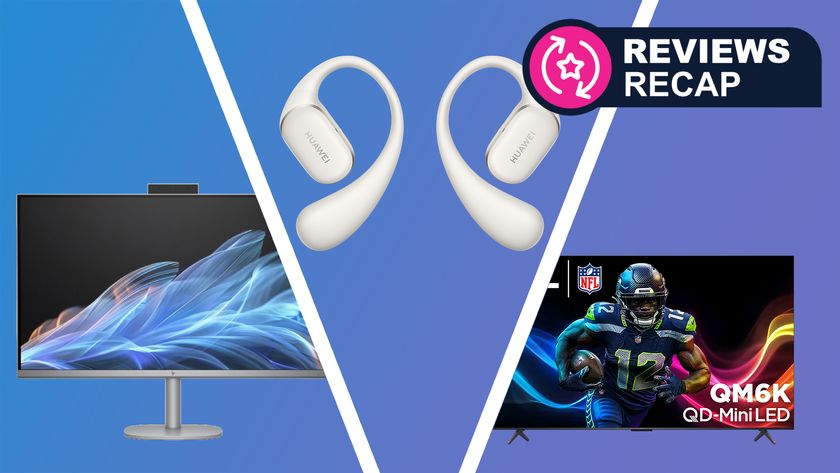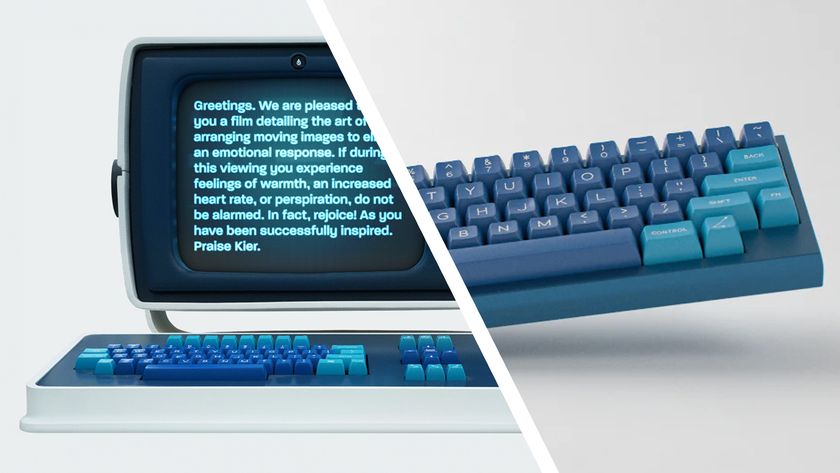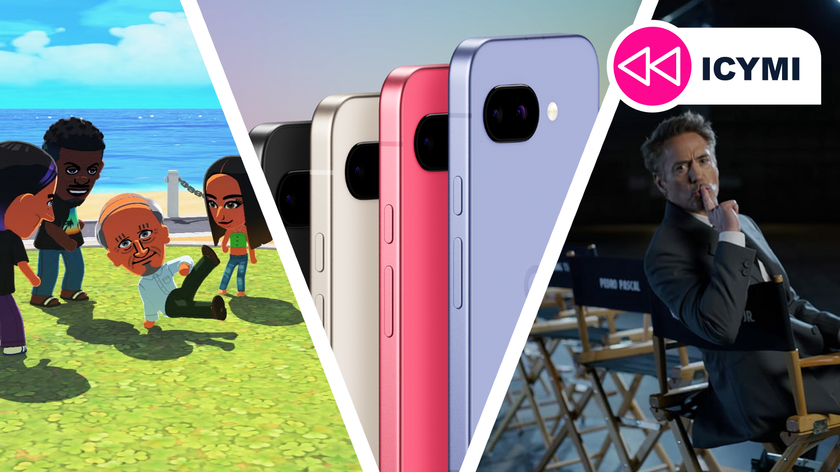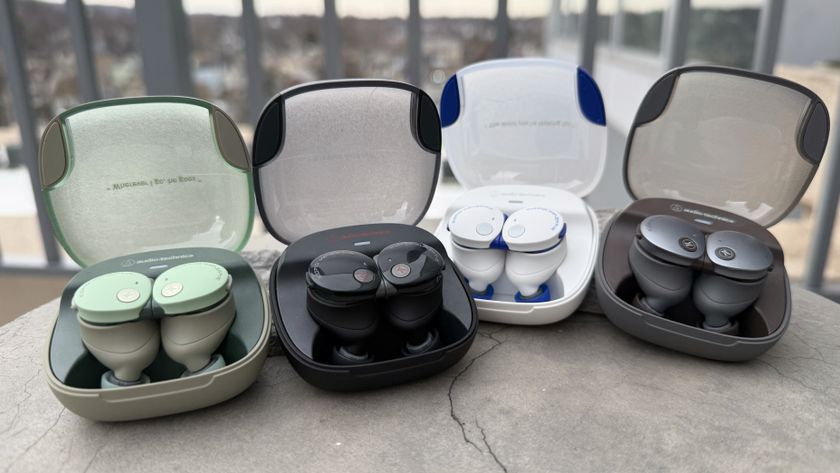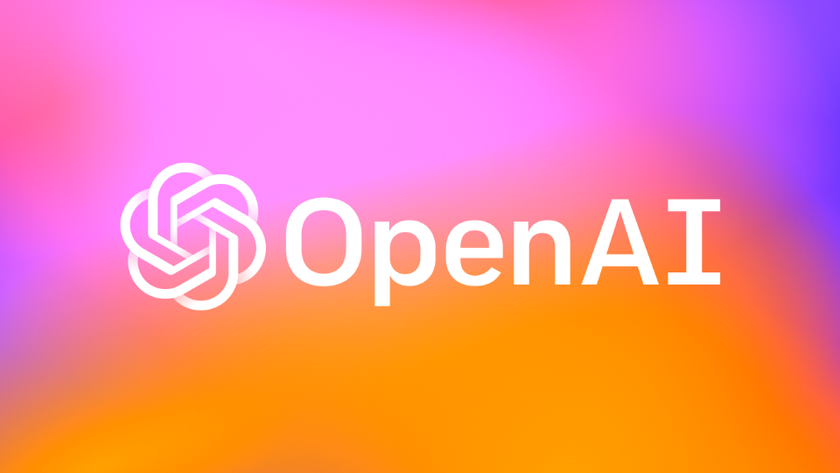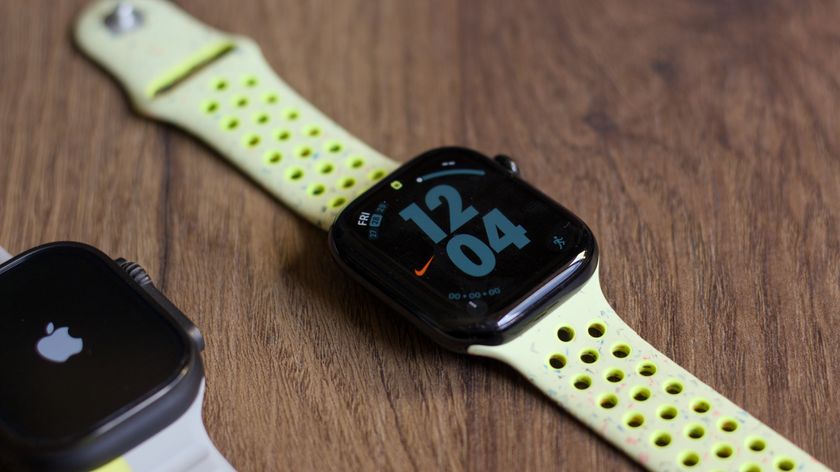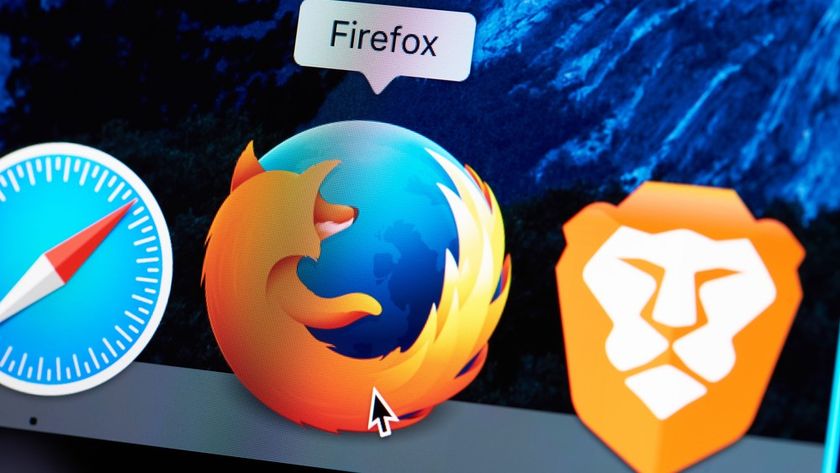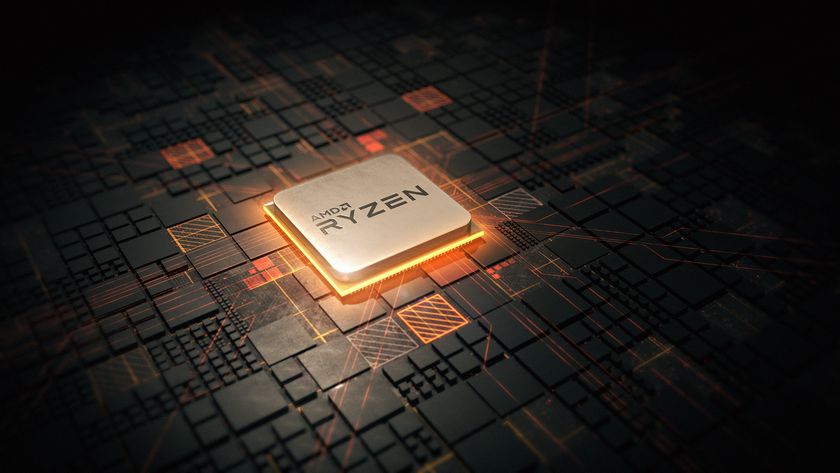EN: "Steve Jobs has been rightly hailed as a pioneer and a visionary whose courage and imagination have brought the digital music dream to reality. His obsession is to develop products and services that consumers really want to buy, his product ranges certainly live up to the three principle tests of value for money, choice and simplicity. And they have the added advantage of being absolutely beautiful.
Enter Apple CEO Steve Jobs
EN: "This is a man who takes aesthetics very seriously indeed. He once said about a new product that they'd made the buttons on it so good that you'll want to lick them. Now standing well back so my buttons are safe, I'm delighted that Steve has made the journey to London to be with us today. Ladies and gentlemen, please welcome Steve Jobs. [applause]
Steve Jobs [SJ]: "Thank you very much. I just wrote things I wanted to say and then we're going to ask a few questions, right?
SJ: "So today EMI and Apple are announcing the next big step forward in the digital music revolution: the movement to completely interoperable DRM-free music.
SJ: "EMI is the first of the big four music companies to take this step and they're entire digital music catalogue will be available DRM-free on iTunes in May.
SJ: "Today we offer more than five million song on iTunes for 99 cents, 99 Euro cents, 79 pence. They all have digital rights management, DRM, and they're all encoded at 128kbps AAC. iTunes has sold over 2.5 million songs to date, earning the record companies over 1.5 billion in revenues, which is highly profitable as there are no manufacturing costs, no product returns, no marketing fees or other costs like those associated with distributing physical CDs. It's all worked out very well for music lovers, for the music companies and for Apple.
SJ: "To take things to the next level we need to address two issues:
Get daily insight, inspiration and deals in your inbox
Sign up for breaking news, reviews, opinion, top tech deals, and more.
- "The first is interoperability: Although most users have never bumped up against the DRM, the music they have bought from iTunes will not play on portable music players other than iPods unless they burn it on to a CD and then read that CD back into the computer. It is interoperable, but it is a bit of a hassle. Even though users may not want to play their music back on devices other than iPods today, they want to know that they have that choice in the future.
- "The second issue for some users is audio quality. While the current 128kbps AAC encoding is the best audio quality offered by any mainstream digital music store, audiophiles can still tell the difference between it and the original source material. As portable music players have increased their storage while at the same time coming down in price, it is time to reconsider delivering even higher audio quality than is currently available.
DRM-free on iTunes
SJ: "We're going to address both of these issues by introducing new versions of our songs and albums that will be sold alongside our existing versions. The new versions will be DRM-free so that they are completely interoperable. They will be encoded in 256kbps AAC for audio quality that is virtually indistinguishable from the original source material.
SJ: "The new versions offering these added values will be priced at a $1.29 per song. That's 1.29 Euros and 99 pence. That's just 30 cents more than the original versions, or just 20 pence more than the original versions here.
SJ: "Our sampling of users indicates the majority of them will pay the additional 30 cents for the superior audio quality and the safety net of interoperability.
SJ: "iTunes will automatically let users choose to buy these DRM-free versions whenever they are available, so that users won't need to think about it on a song-by-song basis. iTunes will offer EMI's entire catalogue of music, including all songs, albums and music videos in the new DRM-free versions starting next month. Worldwide.
Premium quality, premium pricing?
SJ: "In addition iTunes customers will easily be able to upgrade their entire library of previously purchased EMI songs and albums - the higher quality, DRM-free versions - for just 30 cents a song. We think customers are really going to appreciate this.
SJ: "Also iTunes will offer the new DRM-free versions of EMI albums at the same prices as the current DRM-protected versions, so customers can elect to purchase the DRM-free albums with even higher audio quality for the same price.
SJ: "Now users that don't want these new features - or who don't want to pay the extra 30 cents or 20 pence - can continue to buy the current DRM songs at the current prices. iTunes will continue to offer its entire catalogue - currently over five million songs - in the same versions as today: 128kbps AAC encoded with the DRM, at the same price of 99 cents per song, alongside the higher quality DRM-free versions where they are available.
SJ: "EMI has taken the first bold step in the music industry and, starting today, Apple will reach out to all the other major and independent labels to give them the same opportunity. We think our customers are going to love this and we estimate that over half of the five million tracks offered on iTunes today will also be offered in DRM-free versions by the end of this calendar year.
Doubters dumbfounded
SJ: "This is a landmark event, and is the beginning of a major shift that will take place this year, resulting in consumers being able to purchase music from any digital music store and play it on any digital music player.
SJ: "Some doubted Apple's sincerity when we proposed this solution to the interoperability problem earlier this year - saying that as the number one digital music store and the number one maker of digital music players - we had too much to lose by breaking the proprietary bond between the iTunes Music Store [sic] and iPod music players.
SJ: "Hopefully by our actions here today and over the coming months they will conclude that we're continuing to do exactly what has earned us these number one positions: doing the right thing for the customer. And the right thing for the customer going forward is to tear down the walls that preclude interoperability by going DRM-free. And that starts here today. So thank you. [applause]
